CORE Study Blog
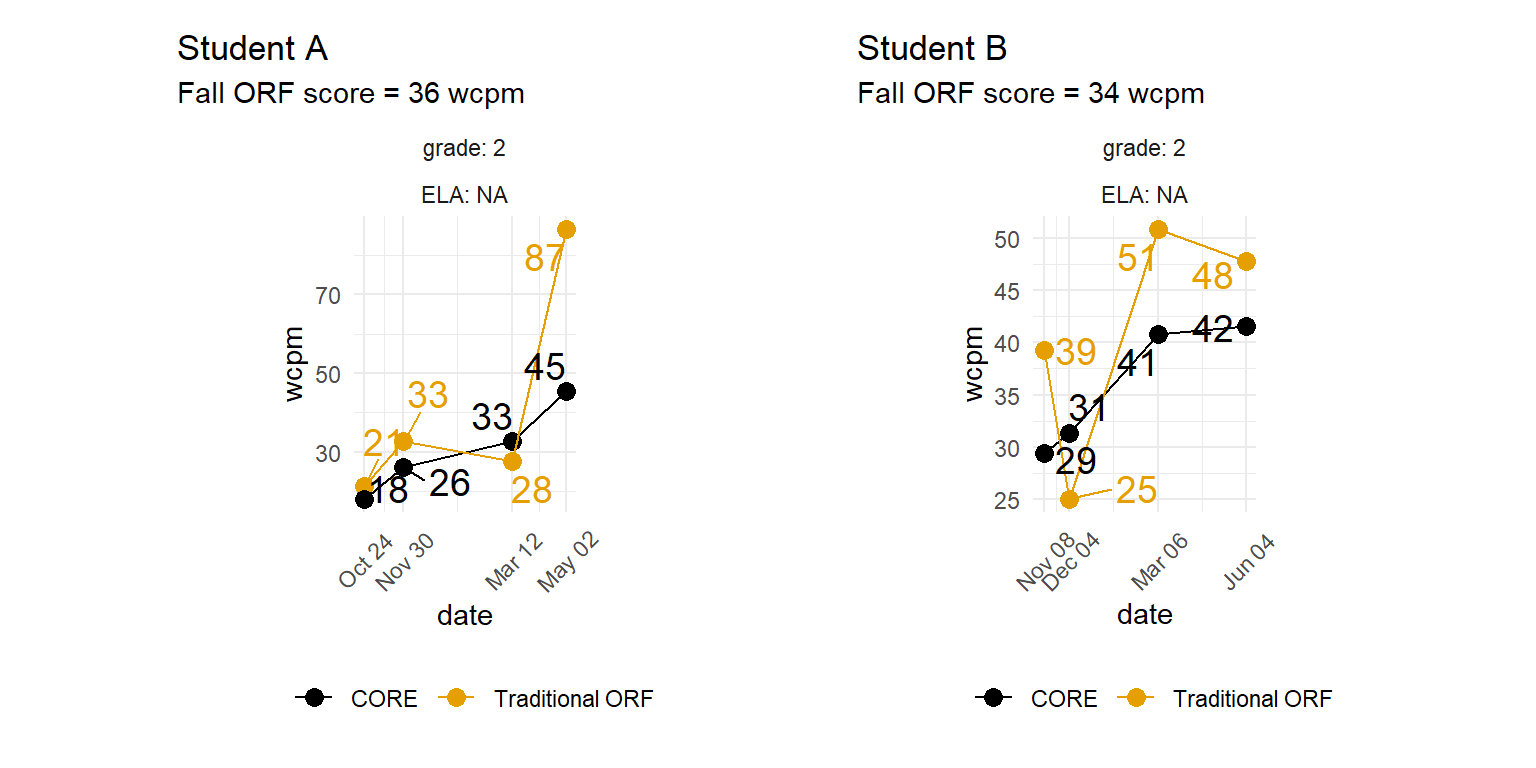
Teacher Focus Group Survey
The purpose of this post was to summarize teacher feedback about the utility and interpretability of the CORE data compared to Traditional ORF scores to help collect consequential evidence of validity for CORE.

Accuracy of Speech Recognition in Oral Reading Fluency for Diverse Student Groups
The purpose of this post is to compare the accuracy of CBM-R scores by an automatic speech recognition engine and human assessor scores for students with disabilities and those receiving English learner supports.

CORE has Lower Standard Error than Traditional CBM-R Measures
The purpose of this post is to compare the standard error of measurement (*SEM*) of traditional CBM-R WCPM scores and the conditional SEM (CSEM) estimates of CORE scale scores.
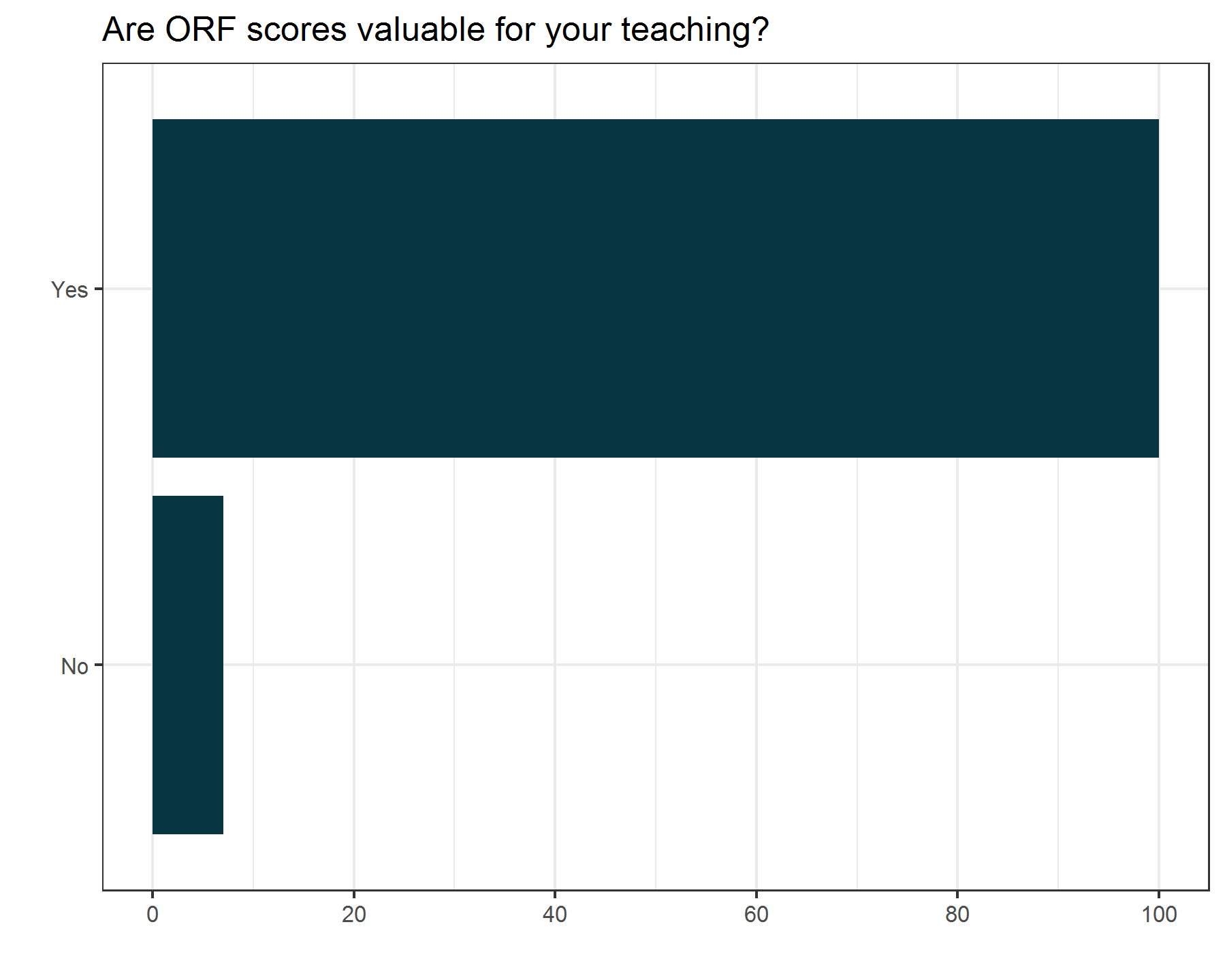
Teacher Surveys: Consequential Validity Study
In this post we present data and comments from the teacher particapants of our Consequential Validity Study.
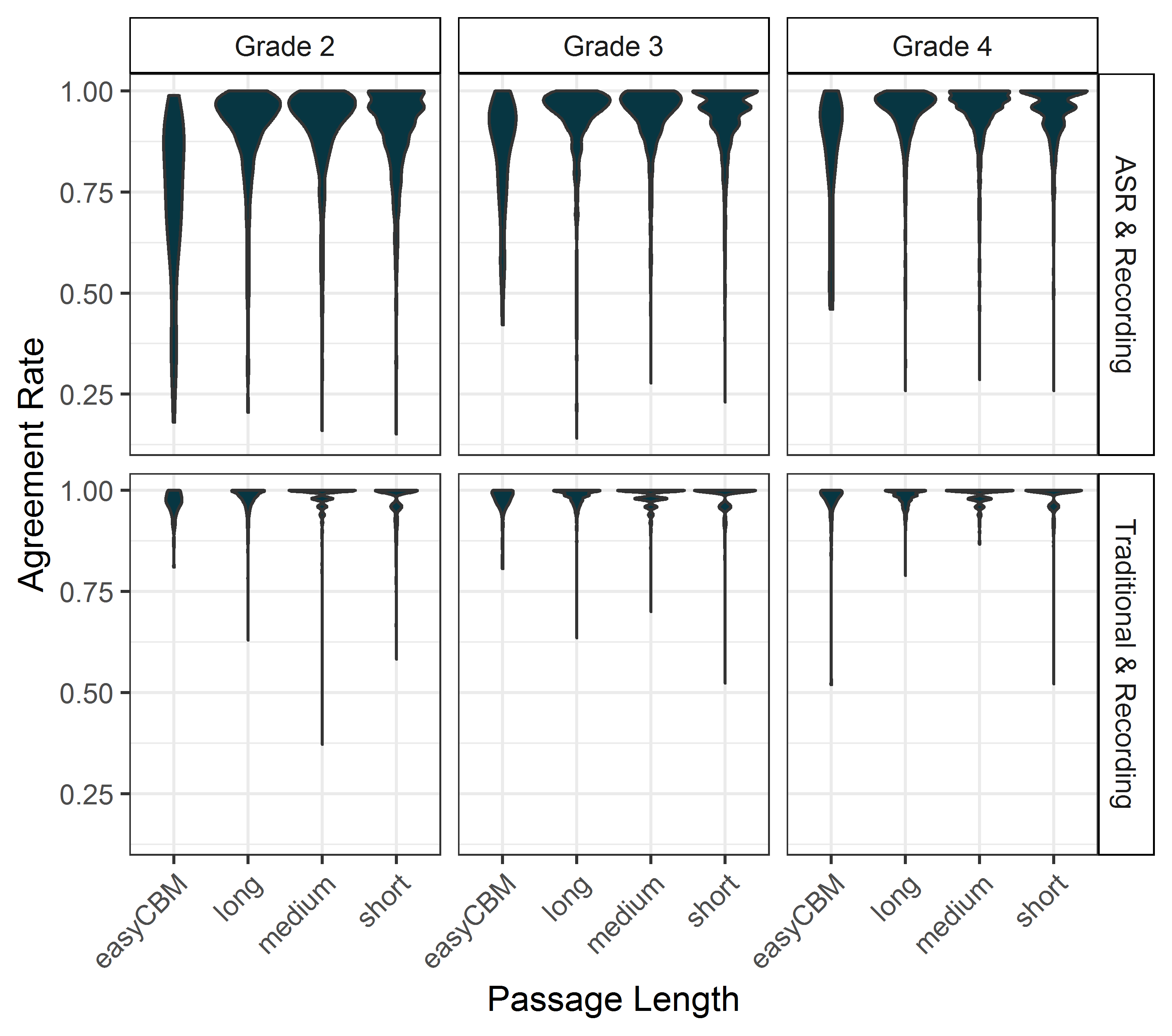
High Accuracy of Automatic Speech Recogntion (ASR) Word Scores
The purpose of this post is to determine whether there are differences in word score agreement rates between the human scoring criterion versus traditional or ASR scoring of traditional CBM-R and CORE passages.
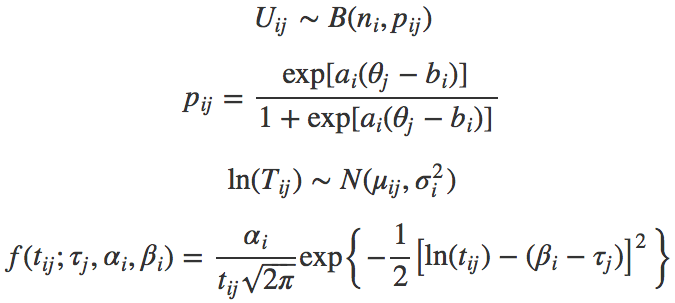
Latent Variable Model for ORF
In this post, we will describe the latent variable model that we have developed and adopted for CORE passages.
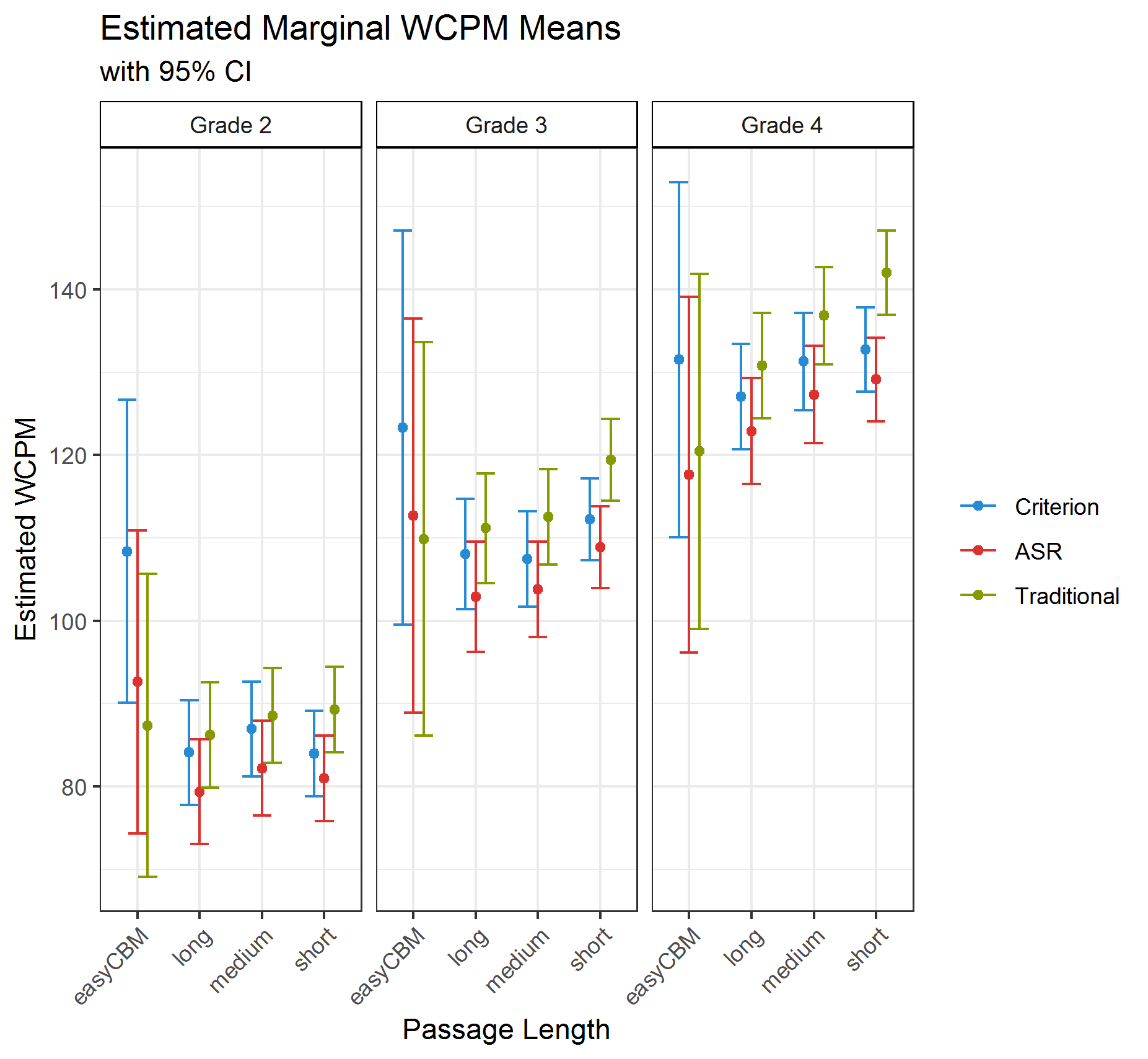
Automatic Speech Recognition (ASR) can be Applied in Schools to Score CBM-R Assessments
The purpose of this post is to determine whether there are scoring method differences in WCPM between the human scoring criterion versus traditional or ASR scoring of traditional CBM-R and CORE passages.
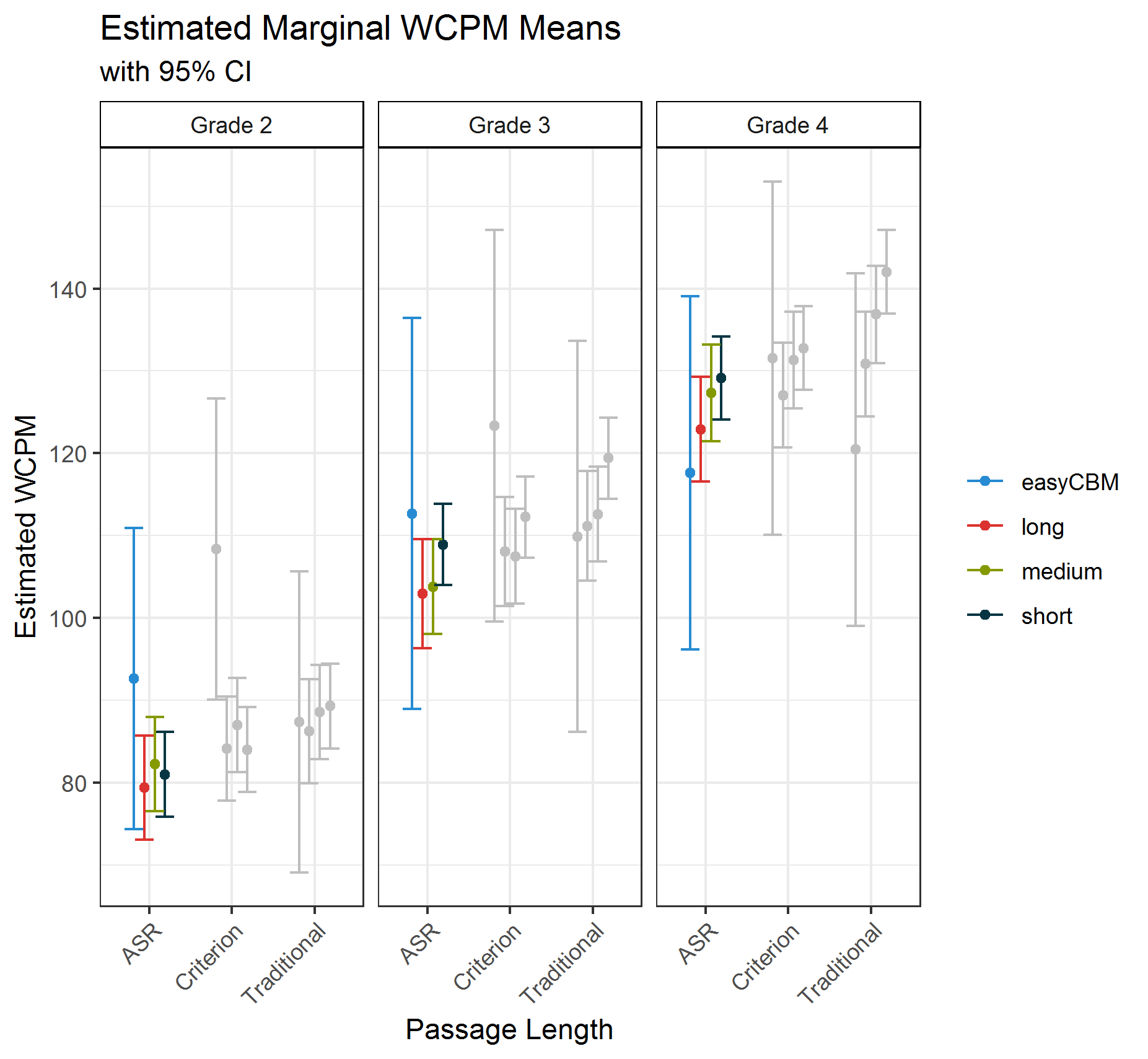
Shorter Passages Can Be Used for CBM-R Assessments
The purpose of this post is to determine whether there are passage length differences in WCPM between traditional CBM-R passages and shorter CORE passages.

Differences in CBM-R Timing: Automatic Speech Recognition (ASR) vs Humans
The purpose of this post is to determine whether there are scoring method differences in time durations between ASR versus Traditional human scoring of traditional CBM-R and CORE passages.
Study Procedures: Consequential Validity
The purpose of this post is to provide a detailed description of the Consequential Validity Study procedures.
Study Procedures: Calibration, Equating, and Linking
The purpose of this post is to provide a detailed description of the Calibration, Equating, Linking Study procedures.
Auxillary Model Building: Content & Convergent Evidence
In this post we provide the results of the mixed-effects model building process applied in our Content & Convergent Evidence Study to answer research questions about differences in words correct per minute (WCPM) scores between three scoring methods, and between passage lenghts, and differences in time duration between three scoring methods.

Study Procedures: Content & Convergent Evidence
The purpose of this post is to provide a detailed description of the Content & Convergent Evidence Study procedures.